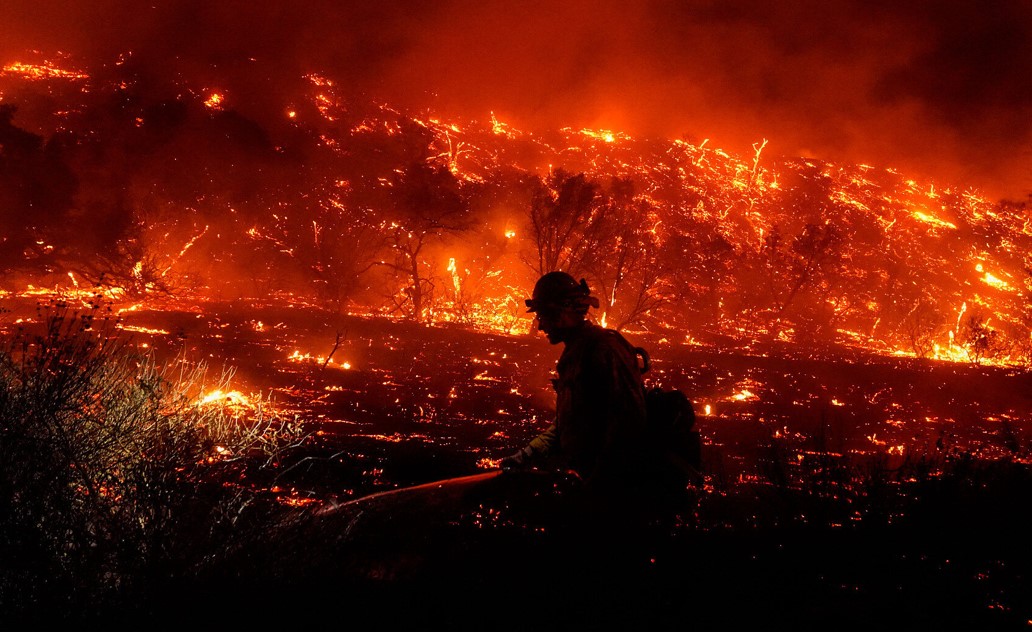Latest News
- Canada Life denies amputation coverage to RCMP officer injured in line of duty; activists say he's not alone
- Ontario's provincial plan for 2025 is fully completed.
- Rare adoption of a polar bear cub near Churchill confirmed by scientists
- Alberta closes supervised drug use centre at Edmonton hospital
- These maps show how the pre-Christmas storm is sweeping across Canada
Latest Ads
-
Jasmine Jewel
Call
-
Omidan group
Call
-
Amir Madanpour
Call
-
Dimo studio
Call
-
Yorkacademy
Call
-
Maryambagheri
Call
-
Shishlix Restaurant
Call

Canadian fires continue until further notice
The fires in Canada have become uncontrollable and so far four people from the rescue team and firefighters have died. According to the Canadian Natural Resources Agency, these fires may continue until the end of the summer.
At the same time as the worst fire season in Canadian history, officials have announced that these fires will likely continue throughout the month of August to September in large parts of the north and west of the country.
Michael Norton, director general of Natural Resources Canada's Northern Forestry Center, said the unprecedented drought that started Canada's wildfires in the first place is likely to continue into late summer. Of course, the rain has helped to reduce these disasters to some extent; But the fires in British Columbia, Northwest Territories and Yukon are still very intense.
Norton added: "According to our forecasts, September will be associated with fewer risks; But the fire will continue in southern British Columbia, the Prairies and parts of northwestern Ontario. Of course, the number of new fires in many of these areas will decrease with the arrival of autumn. "But we have to keep in mind that the danger is still lurking and we will continue to face it in the coming weeks."
Unfortunately, as of August 10, a total of 5,593 wildfires have devastated 13.4 million hectares of Canadian land, killing four firefighters and evacuating 167,589 people across the country.
The emission of carbon dioxide gas is currently at its highest level and is currently equivalent to one billion tons. According to the latest available data and statistics, almost all regions of Canada are involved in fires. "This fire was almost unprecedented," Norton said.
However, Brian Simpson, chief information officer at Natural Resources Canada, said that Quebec has already suffered the most damage, with dozens of wildfires in the province in June causing air quality in central and eastern Canada, as well as Large parts of the United States are affected.
Meanwhile, the Donnie Creek fire in northeastern British Columbia was recorded as the largest fire in the history of this province, and the northwestern regions, Alberta and Saskatchewan were all among those that suffered a lot of damage. Fires in the Northwest Territories, Yukon and British Columbia remain active, with the number of fires in British Columbia currently nearing 400.
Countries such as Australia, Brazil, Chile, Costa Rica, France, Mexico, New Zealand, Portugal, South Africa, South Korea, Spain and the United States have already joined Canada's relief forces to fight these fires, which has increased Canada's capacity. increase to deal with upcoming events.
Of course, according to Norton, this issue is partly related to the federal government's budget. The federal government had previously allocated $256 million in 2022 for future equipment and $28 million to deal with forest fires caused by climate change. He finally said: "Although the current situation is very serious, it will probably end when autumn comes. "However, we, and all Canadians, must prepare for future events and increase our resilience in the face of such disasters."
Suggested Content
Latest Blog
Login first to rate.
Express your opinion
Login first to submit a comment.
No comments yet.


































